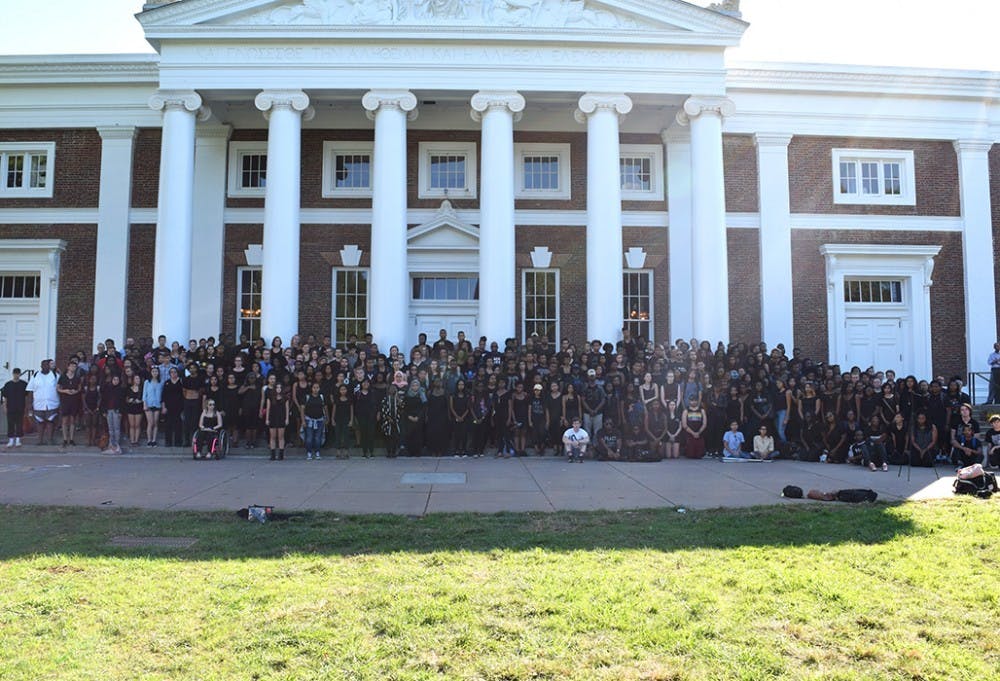For over half a century, the Black Student Alliance has called on the University administration to take steps towards racial equality. However, the University has prioritized optics over substantive change to benefit the lives of its Black students, leaving many of BSA’s current and historic demands unmet. Enough is enough. Black people and groups at the University have been rallying and pushing for change for decades. I condemn the University’s inaction and wholeheartedly praise the resiliency of Black people and groups at the University.
BSA was formed in 1969 — its goal is to articulate the problems and concerns of Black students on a larger and more collective scale. Through its activism, BSA has changed the University as we know it for the better. For instance, in 1976, BSA wrote a “Proposal For the Establishment of an Office of Minority Affairs At The University of Virginia.” After the University failed to respond, 300 Black students marched to the University President’s house to present the proposal. Due to the group’s insistence, the University created the Office of African American Affairs in 1977. This organization still exists and benefits students today, managing everything from Trivia Tuesday to a GradSTAR Program — which aims to prepare students for future career experiences and provides access to necessary University resources. None of this would be happening without BSA’s organizing.
This column is not intended to commend the University in any way for its hesitant steps towards racial equality. Rather, it is a call to action for University administration. It is time the University listened to Black voices. In 1970, and repeatedly since then, BSA called on the University to work towards ensuring Black students make up at least 10 percent of the student body. Last year, just 6.8 percent of undergraduate students were Black. In 2020, BSA called for “the University to include students in the decision-making process regarding COVID-19 responses that impact students.” This has also yet to be done. These two examples are among many of the Black demands that the University continues to ignore.
Nonetheless, Black students and organizations remain resilient. Black students continue attending the University and — despite the fact that it is in no way their responsibility — trying to make it better for all students. Deric Childress Jr., president of BSA and fourth-year College student, explains that he believes “BSA will constantly reiterate these demands for as long as we need to until they’re met.” The persistence of all Black students at the University and the consistent organizational efforts of BSA must be praised.
Moreover, we should all be inspired by BSA — it is an organization that has successfully built a community. Since one of BSA’s main goals is to support Black students, they host “numerous programs and opportunities for students to engage in specifically catered towards Black students and the Black student experience,” according to JaVori Warren, Class of 2020 alumna and former BSA President for the 2019-20 academic year. Creating a community is much harder than it looks, yet BSA has been overwhelmingly successful. BSA hosts events so Black students can build relationships with each other — everything from Black Ball to movie screenings. But it also organizes marches and protests and writes demands to hold the University accountable. BSA exists as an example of effective community building and organizing. We should all look to them with encouragement and admiration.
I hold the utmost respect for BSA. The organization and its members have put countless unpaid hours into bettering the University. However, a crucial caveat is that BSA is not responsible for solving racism on Grounds. Black students should not have to do unpaid labor to demand rights from the University that they should already have. It is time other organizations take action. We here at The Cavalier Daily have a responsibility. As an organization with a large platform, we should dedicate ourselves to highlighting the efforts of Black and other minority groups to demand change from the University. The Cavalier Daily must learn from minority organizations and, within our coverage, we must respect the decades of work they put into making change. Each of us — individual students and organizations — has power at the University no matter how much administration wants us to forget it. It’s time for privileged students and organizations to take a stand.
Jessica Moore is the Executive Editor for The Cavalier Daily. She can be reached at opinion@cavalierdaily.com.
The opinions expressed in this column are not necessarily those of The Cavalier Daily. Columns represent the views of the authors alone.







